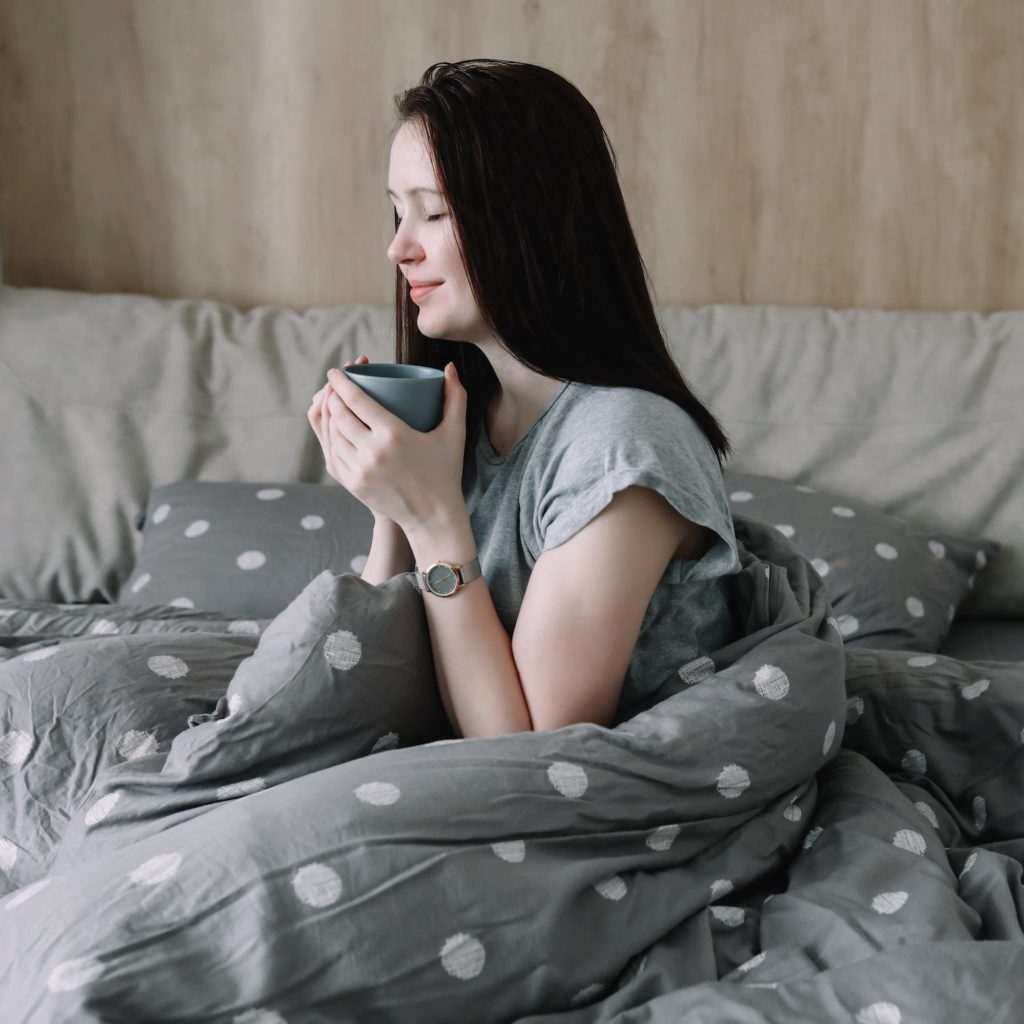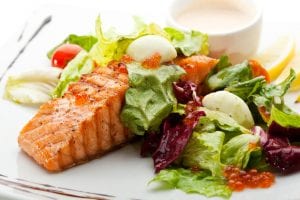Energy drinks contain caffeine and other stimulating substances, which may help you feel more awake, alert, and ready to take on the day.
While energy drinks may help people temporarily feel more awake, they can also disrupt sleep in some individuals. In addition, energy drinks can sometimes cause unwanted side effects like heart racing, jitteriness, anxiety, and sleep disturbances.
We take a closer look at how energy drinks affect the body, and how you can prevent energy drinks from interfering with your sleep.
How Energy Drinks Work
While energy drinks can contain a variety of different additives, caffeine is likely the main ingredient that stimulates the brain and helps people feel more alert.
The amount of caffeine in energy drinks can vary widely. Energy drinks can have anywhere from 40 to 250 milligrams of caffeine in an 8-ounce portion. For comparison, an 8-ounce cup of coffee contains 95 to 200 milligrams of caffeine, while an 8-ounce cup of tea contains 14 to 60 milligrams of caffeine.
The caffeine in energy drinks typically leads to an energy boost within one hour of consumption. Energy drinks and caffeine are linked to better performance on physical and mental tasks. In general, these effects can be felt for up to six hours. However, in some people, the effects of caffeine can be felt for even longer.
Because the caffeine found in coffee and energy drinks can remain in the system for many hours, experts caution on the association between caffeine and sleeplessness. Besides caffeine, there are a number of other ingredients in energy drinks that might make sleep challenging. Some of these ingredients include sugar, ginseng, and guarana.
Caffeine and Sleep
Energy drinks often contain levels of caffeine associated with insomnia. A prevalent sleep disorder, insomnia is described as trouble falling asleep, staying asleep, or a combination of the two. When insomnia lasts longer than three months, it can be categorized as chronic. Ingesting stimulating substances like caffeine can contribute to chronic insomnia.
Unfortunately, because of feeling tired upon waking, people with insomnia might consume more caffeine. The high daytime caffeine consumption can then make it more challenging to sleep at night.
Having a drink that contains caffeine around dinner time could lead to difficulty sleeping that night. That’s because caffeine can stay active in the body for hours after being consumed. Consuming caffeine even six hours before bedtime can affect various aspects of sleep.
Some energy drinks contain the plant extract guarana. The seeds of the guarana plant contain more caffeine than any other plant. Thus, people who consume energy drinks that contain guarana and caffeine from other sources may be getting more total caffeine than they think. The additional caffeine can increase the potential for adverse effects.
Sugar and Sleep
Energy drinks often contain large amounts of sugar. In fact, one serving of an energy drink may contain up to 8 teaspoons of sugar.
Unfortunately, sugar can negatively affect sleep, and experts think there may actually be a two-way relationship between sugar and sleep. Those who consume more sugar may have a lower quality of sleep, while those who sleep for fewer hours may consume more sugar during the day.
Ginseng and Sleep
Some energy drinks contain ginseng at various amounts. Ginseng is an herbal supplement that researchers believe may help increase energy and improve memory. Yet, experts also report that ginseng can be associated with insomnia.
There are two kinds of ginseng, including American ginseng and Panax ginseng.
American ginseng grows in North America and experts report it may help with various health concerns and enhance the body’s resilience to everyday stressors. Yet, in high doses, American ginseng can cause trouble sleeping.
Panax ginseng, also known as Korean ginseng, is an herb taken as a remedy for different health concerns. Unfortunately, the most common side effect of Panax ginseng is difficulty with sleep. This is typically seen with higher doses of Panax ginseng.
Why Do Energy Drinks Make You Tired?
Though it seems unexpected, some people experience tiredness after consuming energy drinks There are a number of reasons why tiredness and caffeinated energy drinks can sometimes go hand-in-hand.
Energy Drinks Can Cause Dehydration
Energy drinks containing caffeine are diuretics. This means they encourage urination. Unless water is consumed as well, energy drinks might cause dehydration.
While caffeine encourages alertness and mental focus, dehydration has some of the opposite effects. Depending on the severity, dehydration can cause fatigue, confusion, dizziness, and other symptoms. Therefore, dehydration may make it more difficult to perform cognitive tasks.
Caffeine Tolerance Might Reduce the Effects of Drinking Energy Drinks
Over time, the same amount of caffeine-containing energy drinks might not produce the energy boosting effects they once did. This might be due to caffeine tolerance, which happens when you need more and more caffeine to get the same alerting effects.
You may think that adding more caffeine to overcome tolerance is a solution, but it is probably not the best practice. This is because, at higher levels, caffeine can cause more negative side effects, severe health problems, and even be toxic.
If you think you may be developing a tolerance to your energy drinks, consider discussing your concerns with a health care provider.
More Energy Drink Consumption Doesn’t Necessarily Mean More Alertness
The beneficial effects of caffeine depend on the amount one ingests. In fact, consuming very high levels of caffeine may actually have negative effects on alertness and performance. Some research has found that low to moderate doses of caffeine can improve performance. But, as caffeine consumption increases, performance or alertness may decrease.
In addition to possibly lower levels of alertness, consuming too much energy drink may also cause symptoms such as:
- Heart palpitations
- Shakiness
- Agitation
- Upset stomach
A Cycle of Poor Sleep and Caffeine Intake
The half life of caffeine in the body is at least four hours, which means it can take eight or more hours for caffeine to leave your bloodstream completely. While caffeine intake may help lessen sleepiness, its effects on alertness are not better than a good night of sleep. So for those who can’t sleep because of caffeine, it’s important to try to avoid caffeine in the afternoons and evenings. By doing so, you may be able to improve sleep habits, get a better night’s sleep, and enhance daytime alertness.
Symptoms of Caffeine Withdrawal
When someone frequently consumes energy drinks and caffeine, stopping suddenly may lead to symptoms of withdrawal. Symptoms of caffeine withdrawal typically start within 12 to 24 hours of stopping caffeine and can last between two to nine days.
The severity of caffeine withdrawal symptoms is typically dependent on the amount of caffeine ingested, as well as how abruptly a person ceases their caffeine intake. Symptoms of caffeine withdrawal are not necessarily dangerous, but may be uncomfortable. Some of these symptoms may include:
- Irritability
- Drowsiness or hypersomnia
- Trouble concentrating
- Headaches
- Nausea
Hypersomnia is a sleep disorder which features an uncontrollable need for sleep even during the daytime. It can be associated with withdrawal from stimulants such as caffeine.
How to Prevent Energy Drinks From Affecting Your Sleep
While there are several factors that can impact sleep, such as our sleep schedule, sleep environment, and exercise, caffeine is one important factor. And, even though consuming caffeine can make falling asleep difficult, there are some small changes that people who like energy drinks can make to obtain restful sleep and improved daytime alertness.
Avoid Energy Drinks In the Evening
Avoiding energy drinks at certain times can improve the quality of sleep. Keep in mind that the effects of caffeine can be felt long after consumption. Drinking caffeinated energy drinks in the afternoon or evenings is not helpful for sleeping later on at night. Shift workers might try to limit their energy drinks to the beginning of their shift.
Take Naps to Aid Sleepiness
Naps are one way to address daytime fatigue. They can be especially helpful for shift workers. Interestingly, researchers suggest a short nap with appropriate amounts of energy drink at the right times could decrease the need for additional caffeine.
Try Alternatives to Energy Drinks
Caffeinated drinks can be physically stimulating and emotionally pleasurable, which can make it hard to decrease their consumption. Cutting back on energy drinks is not dangerous, however, it might lead to caffeine withdrawal. To avoid uncomfortable symptoms, gradually transition away from these drinks over time.
If you like the taste of coffee, but want less caffeine, then you may consider decaffeinated versions. Decaffeinated coffees or teas contain significantly less caffeine than the caffeinated types.
Monitor Caffeine and Sugar Intake
Reading labels can help you monitor sugar and caffeine intake. However, in terms of food and drinks that contain caffeine, you may not always know the amount.
The Food and Drug Administration (FDA) recommends that people in good health consume no more than 400 milligrams of caffeine per day. But unfortunately, figuring out this amount may be difficult. While the FDA requires that products list caffeine as an ingredient, it does not require that companies list the amounts of caffeine in their nutrition facts.
However, despite the FDA not requiring that amounts of caffeine be disclosed, many companies do voluntarily provide the content of caffeine in their products. In addition, the caffeine content of many foods and drinks can be found online.
Unlike caffeine, the FDA notes that total and added sugar should be disclosed on labels. The FDA does not make total sugar intake recommendations. But, for a 2,000 calorie a day diet, the FDA recommends under 50 grams of added sugars. A 16-ounce energy drink can contain up to 62 grams of added sugar, so this alone may have over the maximum daily sugar amount.
Speak to Your Health Care Provider
If you think you may be consuming too many caffeinated energy drinks per day and want to cut back, consider speaking to a health care professional. A health care provider can discuss any concerns you have regarding overall sugar and caffeine intake, and provide recommendations for any sleep difficulties.
Importantly, a health care provider may be able to help you slowly taper your intake so that you can avoid any unpleasant symptoms that may come with suddenly decreasing caffeine intake.
References
Ask the Sleep Doctor
Have questions about sleep? Submit them here! We use your questions to help us decide topics for future articles, videos, and newsletters. We try to answer as many questions as possible. You can also send us an email. Please note, we cannot provide specific medical advice, and always recommend you contact your doctor for any medical matters.







